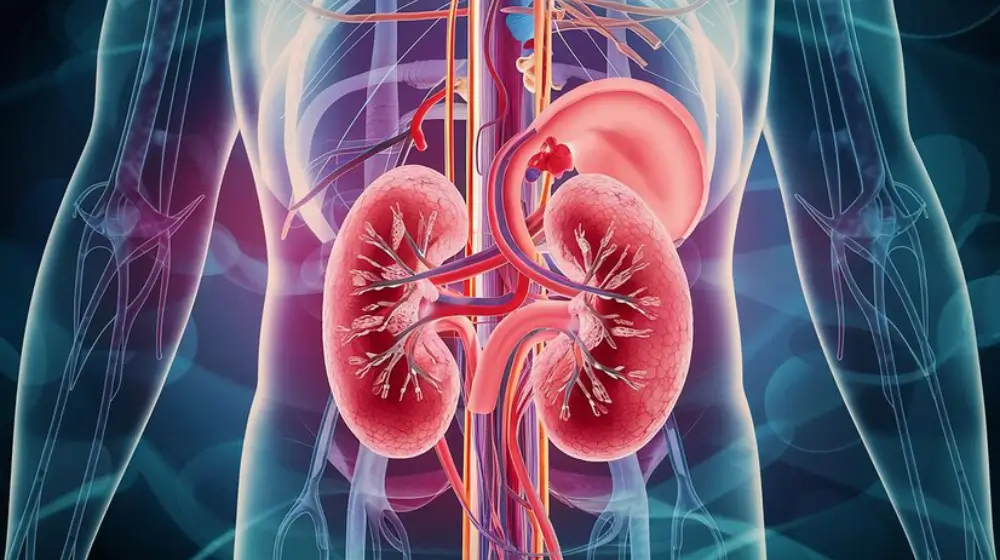
Kidney stones are a common urological issue in India, with Delhi seeing more cases due to urban lifestyle changes and dietary habits. These stones form when minerals in urine crystallise and create solid deposits. Often small, they can cause severe discomfort and may require medical care if they don’t pass naturally.
Over time, kidney stone treatment in Delhi has improved. Hospitals now offer a range of options, from lifestyle advice to surgery, tailored to each patient. This post outlines the best treatments, including non-surgical, minimally invasive, and surgical options.
What Are Kidney Stones?
Understanding kidney stones is essential to choosing the most effective treatment.
Definition and Causes
Kidney stones are hard mineral deposits that form inside the kidneys. They result from concentrated urine, which allows minerals and salts to stick together. Contributing factors include dehydration, high-protein diets, excess salt intake, and some medical conditions.
Types of Kidney Stones
There are four main types:
- Calcium oxalate: The most common type.
- Uric acid: Often linked to high-protein diets.
- Struvite: Associated with urinary tract infections.
- Cystine: Rare and usually genetic.
The stone type influences the choice of treatment, which doctors determine after lab testing.
Non-Surgical Kidney Stone Treatment Options in Delhi
Non-surgical methods work best for small stones or early-stage cases.
Hydration and Dietary Adjustments
Drinking plenty of water helps flush out smaller stones. Dietary changes like reducing salt, limiting animal protein, and avoiding oxalate-rich foods can prevent recurrence. Clinics offering kidney stone treatment in Delhi often guide patients through such lifestyle changes.
Medications for Kidney Stones
Doctors may prescribe pain relievers, alpha-blockers to ease stone passage, or medications that change urine pH to dissolve stones. These prescriptions are tailored to the type and size of the stone and the patient’s overall health.
Lithotripsy (Shock Wave Treatment)
Shock wave lithotripsy (SWL) uses sound waves to break stones into smaller pieces that can pass in urine. It’s suitable for medium-sized stones and is non-invasive, making it a preferred outpatient option in many Delhi hospitals.
Minimally Invasive Kidney Stone Treatment in Delhi
When stones are too large for medication or SWL, minimally invasive techniques are used.
Ureteroscopy with Laser Lithotripsy
In ureteroscopy, a thin scope is passed through the urinary tract to locate and remove or break the stone using a laser. This approach is precise, reduces the chance of damage, and is commonly used by Delhi hospitals for lower urinary tract stones.
Percutaneous Nephrolithotomy (PCNL)
PCNL is used for larger or hard-to-reach stones. A small incision is made in the back to insert instruments directly into the kidney for stone removal. This method offers high success rates and shorter recovery compared to open surgery.
Surgical Treatment Options for Kidney Stones in Delhi
Surgical methods are usually reserved for complex or recurring cases.
Open Surgery for Kidney Stones
Though rare today, open surgery is still performed for very large or complex stones. It involves making a larger incision to remove the stone directly. This method is used only when other treatments are not suitable.
Laparoscopic Surgery
Laparoscopic surgery involves small incisions and the use of a camera and tools to remove the stone. It causes less pain and has a shorter recovery period. Several Delhi hospitals prefer this method when PCNL isn't viable.
The Role of Expert Surgeons in Kidney Stone Treatment in Delhi
Specialist skills significantly impact treatment outcomes.
Qualifications and Experience of Surgeons
Delhi is home to skilled urologists with experience in advanced procedures. Their knowledge allows for careful diagnosis and the use of the least invasive techniques for each case.
Tailored Treatment Plans
The best hospitals don’t use a one-size-fits-all approach. They customise treatments based on medical history, stone type, and lifestyle, ensuring long-term success and patient comfort.
Cost of Kidney Stone Treatment in Delhi
Understanding cost factors helps patients plan better.
Factors Affecting the Cost of Treatment
Costs vary depending on treatment type, stone complexity, hospital choice, and whether inpatient care is needed. SWL is generally more affordable, while PCNL and laparoscopic surgeries cost more due to specialised equipment.
Affordable Treatment Options
Delhi offers high-quality care at prices lower than many other cities. Insurance options, packages, and support programmes also help make treatment accessible to more people, including international patients.
Why Choose Kidney Stone Treatment in Delhi?
Delhi combines skilled professionals, modern tools, and accessible care.
Advanced Medical Technology
Hospitals in Delhi are equipped with advanced diagnostics and surgical tools. These include high-resolution imaging and laser systems, which help in faster, more accurate treatments with fewer complications.
Highly Skilled Specialists and Surgeons
Delhi’s urologists are trained in both traditional and modern techniques. Their expertise improves treatment success rates and reduces the chance of recurrence.
Accessibility and Convenience
Patients in Delhi benefit from quick appointments, short waiting times, and smooth hospital procedures. The city’s medical facilities are also well-connected, making them accessible to patients from across India and abroad.
Conclusion
Delhi offers a wide range of kidney stone treatments from preventive advice and medication to advanced surgical solutions. Each option is matched to the patient's unique condition and the type of kidney stone.
Whether you’re dealing with a minor issue or a complex case, kidney stone treatment combines skilled professionals, modern methods, and personalised care to help you recover fully and avoid future complications.